On the night of February 26, 2010, at 10 PM, Harish Shelke, an M.A. student from the Marathi Department at Pune University, called and said, “The scheduled speaker for tomorrow’s lecture in the World Outside the Framework' series, Popatarav Pawar, has sent word that due to some unavoidable circumstances, he will not be able to attend. Since many students from various departments will be attending the program, we are expecting a huge crowd. So, at the last minute, who can we approach? The person should be such that the youth won’t be disappointed and the crowd will not diminish?”
There is no shortage of speakers in Pune, but considering the time and situation, I suggested, “I see only one possible option, Dr. Dabholkar! He will be arriving in Pune by bus from Satara at 11 AM tomorrow morning. Arrange for him to be brought to the university as soon as he arrives. However, you need to inform your department head, Prof. Manohar Jadhav, to call him immediately. Explain your predicament honestly over the phone. Although this might not be an issue of prestige for him, he might not be willing to accept the invitation at the last minute, setting aside his other commitments. Also, he might question why, with so many speakers at your university, you are asking for him at the eleventh hour.”
Harish conveyed the message to Prof. Jadhav, who called Dr. Dabholkar at 11 PM to explain the situation. Doctor asked, “What should be the topic of the lecture?” Prof. Jadhav replied, “Superstitions among educated people.”
The next afternoon, when I arrived at the Sadhna office, Dr. Dabholkar had already delivered his lecture at the university and had come to Sadhna to continue with his work... Three years later, On 20th August 2013, Dr. Dabholkar was murdered. After some time, I requested the audio file of that lecture and had it transcribed. This is that lecture...! We bring it to you in English today, in solemn remembrance of his persona.
- Editor
Friends, I have been asked by our department head, Dr. Manohar Jadhav, to speak on the topic "Blind Beliefs of the Well-Educated: Nature, Causes, and Solutions." He mentioned to me, "To be honest, the topic should have been 'Blind Beliefs of the Educated' because in this context, adding 'well' before 'educated' is an insult to the term." He further explained, "Blind beliefs are intrinsically bad for anyone by default, but those held by the educated are worse because they often defend these beliefs." This is indeed true. For the past twenty-five years, I have been a full-time worker for the Andhashraddha Nirmulan Samiti striving for eradication of superstitions from the minds of people, and as a result, I can share with you numerous interesting instances of blind beliefs among the educated, which would make you exclaim, "How can the educated think like this?!!" However, I have no intention of presenting it in that way. My discussion will focus on why blind beliefs persist among the educated, what should be done to eliminate them, and what the limitations of these efforts might be, as I understand them.
Around 1982, I decided to close my full-time medical practice and become a full-time activist. At that time, and even today, some people would tell me, "There is no need for your work in the cities. Superstitions exist in rural areas and among the uneducated. Therefore, you should focus on eradicating superstitions in the rural regions." Others would say, "Dabholkar, education is not serving any purpose. People are becoming educated, but they are still falling prey to various superstitions. So, even after becoming educated and being considered well-educated by society, why do people still succumb to so many superstitions? Please explain this." Today I will attempt to do just that.
When I became involved in this movement, it was commonly said that "People are superstitious because of their ignorance!" There's no doubt that ignorance is a significant cause of superstition. A hundred years ago, when someone had a fever and developed boils on their body, the fever and boils would eventually go away. But after the scabs from the boils fell off, the person's face would appear pockmarked, resembling the surface of a hammered metal pot. People would then say, "This is the wrath of the goddess," and that's how the disease got its name, "Devi" (goddess).
Today, if someone were to offer a reward of one crore rupees to show a person afflicted with the "Devi" disease (small pox), it would be impossible for anyone to do so. This is because the disease, which spread from one person to another, has been eradicated worldwide. Now, the germs of the disease are only preserved in laboratories for experimental purposes. As a result, the superstition that this disease was caused by the wrath of the goddess and led to disfigurement, disappeared once people understood the true cause of the disease.
Today, a superstition that still exists but may hopefully disappear in the next century is the belief in possession by spirits or the goddess entering someone's body. If a person, who was perfectly fine until yesterday, suddenly starts behaving differently—sitting silently for hours like a mute, forgetting basic bodily functions, or working excessively to the point of exhaustion—if their eyes start opening and closing erratically, their voice changes, their face alters, they start snapping their fingers or spinning around themselves, the first suspicion that arises, even today, is that "this person must be possessed by an external spirit."
This is because the understanding that "the mind exists" and that "just as a fever can suddenly arise, the mind can also suddenly fall ill" has not yet reached even students. If you ask any student in a college to draw a picture of the mind, they will inevitably draw a "heart shape with an arrow through it." Because they are unaware that the mind is located in the brain and that it can fall ill, it is naturally assumed that the person is possessed by a spirit or that the goddess has entered them. This ignorance leads to and sustains superstitions.
In the new dynamic social life, many other reasons have emerged. The first is the fear of the unseen. Every individual harbors an eternal fear of death in their mind. As G. D. Madgulkar's popular poetic line goes, " मरणकल्पनेशी थांबे । तर्क जाणत्यांचा। पराधीन आहे जगती पुत्र मानवाचा - Even the wise cannot explain death; humanity in this world is ultimately dependent on others." But the fear of the unpredictability of death, the question "When will death come to me?" constantly haunts everyone’s mind. To find freedom from this fear, if someone suggests, "Wear this particular talisman," or "Wear this specific amulet," or "Chant this Mrityunjaya (death-defying) mantra," it is natural for anyone to think, "What’s the harm in trying?"
Today, the realm of this fear of the unseen has expanded considerably. For example, "I am free of vices, and I wish my son remains free of vices. But he is in Mumbai for his studies, where there is a significant prevalence of addiction among young people. If my son, who is somewhat weak in his resolve, falls into addiction tomorrow..." This fear of the unknown constantly gnaws at the mind, prompting the mother to make a vow. Thus, the "fear of the unseen" is the first reason.
The second reason is helplessness and instability. Today's social life has become extremely unstable and helpless. For instance,
- the expenses that were manageable for me last year are no longer so this year due to rising inflation, making it difficult to run my household.
- I have been living in government housing, but now that my job is nearing its end, buying a place of my own is beyond my financial reach. This creates a sense of helplessness, such as worrying, "Where will I live after six months?"
- I have a young daughter at home, and I see that the hoodlums from the nearby slum constantly harass girls. My daughter returns home from work every night, and I am filled with helplessness, hoping nothing bad happens to her.
- In a neighboring village, houses of the minority community are set on fire, and I belong to the minority in my village, leaving me feeling helpless with the fear that I might be the next target.
Thus, on one hand, the helplessness faced by ordinary people is one reason behind superstitions. On the other hand, the instability surrounding social life due to various reasons is another cause of these superstitions. No matter how good a player is, he doesn't know if he'll be out for a duck the next day. Similarly, no matter how talented an actor is, he doesn't know why his successive films might flop. Even if a business is thriving, the owner can't predict what they will do if an explosion in town destroys their shop. This inherent instability in life is another reason for the superstitions that even the educated tend to believe.
The third reason is the fulfillment of "unfulfilled desires." Every day, the time we spend watching television or reading newspapers constantly exposes us to a lavish and extravagant world. We find it incredibly appealing, yet we are fully aware that most of these things are beyond our reach. This leads us to think, "If I go to a spiritual leader or a guru, and they bless me, and by their grace, I win the lottery - (whether I actually win or not is irrelevant here) - at least there’s a possibility that my unfulfilled desires might be realized." This hope motivates us to seek out these sources of perceived divine intervention.
The fourth reason is guilt. In today's life, whether we like it or not, we often have to live unethically. For instance, whether or not you give or accept a bribe may not be entirely up to you. Suppose you are a police officer, and both your superiors and subordinates are taking bribes; in that case, your refusal to engage in such practices becomes almost meaningless. Often, the money you earn might be from illegitimate sources, which pricks your conscience. You start looking for ways to relieve your conscience of the guilt.
You might have heard of the easiest solutions people resort to. At the Tirupati Balaji Temple, people donate crores of rupees anonymously into the donation box. Do you know what they are doing? To ease the guilt from the fraud committed in business, four partners in a business might make Lord Balaji the "fifth partner." The idea is that by donating a fifth of the profits earned through deceit to Balaji, the sense of guilt diminishes. This is because they believe they have given the deity his due share, thus easing their conscience by thinking of God as their ‘partner in the business’.
So, when the superstitions of the educated were solely based on ignorance, there was a possibility that they could be dispelled through knowledge. However, when these superstitions became intertwined with various factors such as fear of the unknown, helplessness, instability, fulfillment of unfulfilled desires, and guilt, the situation became even more complex.
Since you are students of Marathi Literature, you likely read poetry. There is a poetry collection by Mangesh Padgaonkar titled "Udasbodh" ("Melancholy Thoughts"). Samarth Ramdas wrote "Dasbodh", and observing the current situation, Padgaonkar, feeling melancholic, wrote "Udasbodh". In this collection, he expressed the sadness he felt when observing the present state of affairs. Just as Dasbodh has sections (samās), so does Udasbodh. The process I've just described is beautifully portrayed in the section titled "Buvabaji" in Udasbodh. Since this is my favorite poem, here are some lines from it that relate to this topic. These lines poignantly capture the state of people who are weakened, both physically and mentally, consumed by an invisible fear, and desperately seeking support:
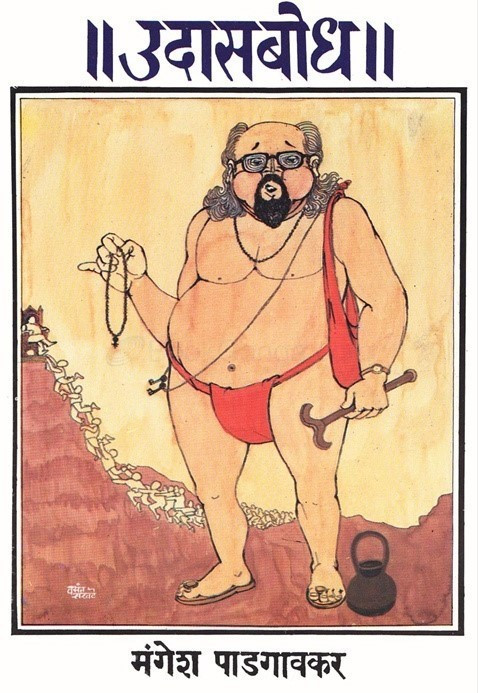 माणसे खपाट खंगलेली। आतून आतून भंगलेली।। अदृश्य दहशतीने तंगलेली। आधार पाहिजे।। प्रत्येकास येथे हवा। कोणीतरी जबरी बुवा।। जो काढेल साऱ्या उवा। मनातल्या चिंतेच्या।। आधी म्हणे जय साई। मगच अधिकारी लाच खाई।। अजून पकडला गेला नाही। कृपा म्हणे बाबांची।। आपण शोधायचे नाही। आपण लढायचे नाही।। आपण भिडायचे नाही। आयुष्याला।। कणा झिजून गेला पार। शिरजोरीपुढे सर्व लाचार।। बुवा नामजपाचा उच्चार। नशा देई।।
माणसे खपाट खंगलेली। आतून आतून भंगलेली।। अदृश्य दहशतीने तंगलेली। आधार पाहिजे।। प्रत्येकास येथे हवा। कोणीतरी जबरी बुवा।। जो काढेल साऱ्या उवा। मनातल्या चिंतेच्या।। आधी म्हणे जय साई। मगच अधिकारी लाच खाई।। अजून पकडला गेला नाही। कृपा म्हणे बाबांची।। आपण शोधायचे नाही। आपण लढायचे नाही।। आपण भिडायचे नाही। आयुष्याला।। कणा झिजून गेला पार। शिरजोरीपुढे सर्व लाचार।। बुवा नामजपाचा उच्चार। नशा देई।।
"People are emaciated, hollowed from within, worn out by an invisible terror,. They seek a strong support.
(Everyone here wants a powerful guru, someone who can rid them of all the worries and fears that plague their minds. First, they chant 'Jai Sai,' and only then do officials accept bribes, they haven’t been caught yet, attributing it to the guru's blessings. We don’t want to seek the truth, we don’t want to fight, we don’t want to confront life. Our backbone has eroded completely. In the face of stubbornness, everyone is submissive. The mere utterance of the guru's name, gives us an intoxicating high.)
These lines from Mangesh Padgaonkar’s "Udasbodh" vividly illustrate the complex interplay of fear, superstition, and the abdication of personal responsibility in contemporary society. They emphasize how people, overwhelmed by life’s challenges, often resort to blind faith in spiritual leaders, seeking an easy escape from their troubles rather than facing them head-on.
So, on one hand, I am being pushed towards superstition, and on the other, I find a false but temporary sense of peace and support, similar to the fleeting comfort one might feel after taking an intoxicant. This sense of peace and support is something that even the educated experience, which serves as a personal explanation for the appeal of superstition.
When we consider the process of social transformation, we recognize that every phenomenon has both an individual and a societal aspect, with the latter often being more significant. I believe that the primary reason educated individuals are drawn towards superstition lies in the broader social structure, which has inevitably created a system that propels them towards superstition in many ways.
If you examine any forms of superstition, you'll notice that the most significant ones are related to the so-called 'healers' or 'miracle workers.'
In the book "Aise Kaise Jhale Bhondu", I've provided many such examples in detail, illustrating how people are misled by such fraudulent charlatans. These examples highlight the extent to which people, driven by desperation, are often led astray by fraudulent claims, and are given to believing in miraculous cures that defy logic and scientific understanding.
One example is of Aslam Baba, a young man in his mid-twenties with only a fifth or sixth-grade education. Claiming to be blessed by Allah, he would perform surgeries with his bare hands, even replacing heart valves. According to a report in Daily Sakal titled "Bagalkotcha Report," nearly 1,000 people would gather daily to have these procedures done by him. His initial fee was 500 rupees. Multiplying 500 by 1,000, this amounts to 5 lakh rupees in a single day a sum that surpasses the daily earnings of any real doctor, not just in Pune, but across India.
Another example from the book is about Parvati Maa from Bhavnagar, Gujarat, a few years ago. She claimed that by simply running her hand over a childless woman's abdomen and chanting "Balaka Shanti" three times, the woman would become pregnant. Such was her reputation that there wasn't a single district in Maharashtra from which buses did not depart for Bhavnagar to visit her.
Furthermore, even today, there is a "Farshiwala Baba" near Trimbakeshwar in Nashik. His specialty is placing a slab with the footprints of Lord Dattatreya on the head of any person suffering from any illness, claiming to cure them. Not only that, but he also boasts of having discovered cures beyond the reach of modern science. Even if the sick person cannot be brought to him due to severe illness, their clothes can be brought instead. Baba claims that by placing the slab on the clothes, he can diagnose the illness - a feat that makes him seem like an extraordinary doctor to his followers.
These instances may have made you laugh, but they cause immense pain to me. In spite of the law being on our side, in spite of the act for taking action against fraudulent medical practices being in practice, in spite of tirelessly fighting for the cause with everything I have for the last seven years, I have not been able to pull the shutter down on this Farshiwala Baba. Even today you would find 200-300 desperate people queuing up to seek his “blessing”. He, a man who failed in seventh grade at school, gives “medicines” worth Rs. 400 (on an average) to each patient every single day. Outrageous!
Let’s keep aside the superstition for a moment, but one major reason behind all this inflated economy in this country. If you take a look at some of our recent budgets, you would realise that the government is gradually reducing the investment in health care management. As a result, good quality health care cannot be guaranteed at any time and place at affordable rates. If proper health care is not available or affordable for me, at the hour of need, I would inevitably turn to such superstitious practices. Seeking support in superstitions in such circumstances is wrong, but it is understandable because it is human nature. No person would say, “no matter what happens, I will not seek cure from a ‘baba’!” They would seek help for their own from wherever they can.
As students, we were taught two things – one, class conflict is inevitable if you aspire for social transformation. The class of “have nots” (the marginalized) is the biggest one in the society, and the class of “haves” (the elevated) is the smallest one. But the elevated class exploits the marginalized class. We must fight against the exploitation and drive away any and all religious or caste-related beliefs, that hinder the transformation. There is an inherent possibility of eradication of superstitions instilled by religion and casteism during such a hustle. Secondly, when I was a student your age, I was an activist in Jayaprakash Narayan’s movement. I learned “जयप्रकाशजी का है अरमान। ब्राह्मण भंगी एकसमान – Jayaprakashji’s vision is that Brahmins and Bhangi should be equals” and “जानवं तोडा, माणसं जोडा – break the sacred thread, create people’s bonds”. The point was, if the sign of Brahmin community, the sacred thread is becoming the cause of discrimination among people, we must do away with it and strive to create bonds between people and communities. It was around 1975, that I we spoke about it. But what’s the progress in 2008-09 in Pune, the city of the educated?
Two lakh Brahmins gather, and at that convention, a learned Marathi professor from Pune states, "Brahminhood is not just about the sacred thread and sandalwood paste." For this, she is forced to issue an unconditional apology, and there isn't a word of protest. A Brahmin might say, "Dabholkar, wearing the sacred thread is our issue. Speak against it, and beware!" Among the elite Marathas, women aren't allowed to remarry. I come from Satara district, where the Maratha population is about 40 to 45 percent. A significant portion of those in the military are Marathas. When these soldiers die in service, what do their wives do? They live the rest of their lives in misery because if they remarry, their family's honor is tarnished. No one dares speak about this. If you go to the Dhangars and ask, "Why do you sacrifice animals during your pilgrimage?" they respond, "Beware! This isn't a sacrifice; it's our traditional feast. You have no reason to interfere." If you go to the Matang community and say, "Why do you pierce your throats during the Shendrya pilgrimage? Piercing throats is a superstitious practice that can lead to diseases like AIDS," they respond, "Are we the only ones left for you to enlighten?" In a society where religious and caste-based identities are being reinforced with such vigor, how will superstition be eradicated?
Once, I went to a college in Ahmednagar district for a speech. Before the speech, I asked the management, "What should I talk about?" One of them said, "Doctor, you can talk about anything, but you must address one issue." I asked, "Which one?" He replied, "For the past five years, our village has only collected funds for two things: one, to organize the grandest Harinam Saptah (a religious festival), and two, to renovate the temple or build a new one. Because of this, there is no room left to ask for money for anything else, whether it's for the village roads, water supply, or overall development." So, later, I asked some workers to conduct a survey. (You can do it too if you wish.)
The survey topic was, "In the last five to ten years, for what purposes have funds been collected from the public in rural areas of Maharashtra?" The response was that the money was gathered only for building temples, renovating temples, or organizing the grandest possible religious festivals. This means that in a society where caste and religious identities are being sharpened, it is not easy for either the educated or the uneducated to eliminate superstitions. The Indian Constitution states that "secularism is an integral part of the Indian Constitution." What does this mean? It means that even Parliament does not have the authority to alter the principle of secularism, according to an eleven-judge bench of the Supreme Court. Thus, "secularism" is a fundamental part of this country's Constitution.
However, in recent years, a systematic program has been underway in this country to communalize religion and simultaneously promote cultural nationalism as much as possible. For example, when we were young, the Ganpati festival was celebrated. Gradually, it spread to even the smallest villages. When that wasn’t enough, Navratri was introduced. But that didn’t bring enough excitement, so Garba was added. Later, it was noticed that Janmashtami falls in August, so we began the tradition of breaking the Dahi Handi (pot of curd). In the past few years, in Pune city, swings for Lord Dattatreya have started appearing in every ward during the December festival of Dattajayanti. Huge posters of Lord Shiva began to be displayed during Mahashivaratri, and processions started being organized. When April arrived, Ramnavami began to be celebrated, followed by Hanuman Jayanti. By the time all the months from August to April were filled with festivals, we realized that March was left out. So, we remembered that Gudi Padwa is in March and that it marks our new year. But now, most people believe the new year begins on January 1. But we aren’t the kind to give up easily. We said, "No problem. The new year that begins on January 1 is for drinking, and Gudi Padwa is for celebrating!" Has Maharashtra suddenly become so religious? All of a sudden? And even that’s not enough.
Was there ever something called "Vaibhav Mahalaxmi Vrat" in the month of Margashirsha seven or eight years ago? Now, whether you go to a metropolis or a small village, you see all the women breaking branches off trees, harming the environment, and performing this ritual with a pot, a branch placed on top, and observing the Vaibhav Mahalaxmi Vrat. If prosperity could be achieved by performing this ritual, then we might as well have had the Finance Minister or the Prime Minister perform it!
Through all this, over the last 15-20 years, there has been a systematic plot in this country to commercialize, market, distort, and politicize religion to promote cultural nationalism and sectarianism. Religious faith is something that should be deeply respected, and we do respect it. However, all the saints and social reformers in Maharashtra tried to steer people's religious faith towards morality, while the proponents of cultural nationalism have attempted to divert people's religious faith towards fanaticism. This is because they weren't satisfied with merely commercializing religion; they wanted to market it as well. After some time, even that didn't seem enough for them.
For example, when the High Court in Mumbai imposed a ban on making noise after 10 p.m. during the Navratri Garba, people laughed. They said, "What will you achieve by imposing a ban on us?" So, they built a pavilion covering 70,000 square feet and made the entire pavilion soundproof. "Your ban stays, and so does our Garba!" This is what the commercialization of religion looks like.
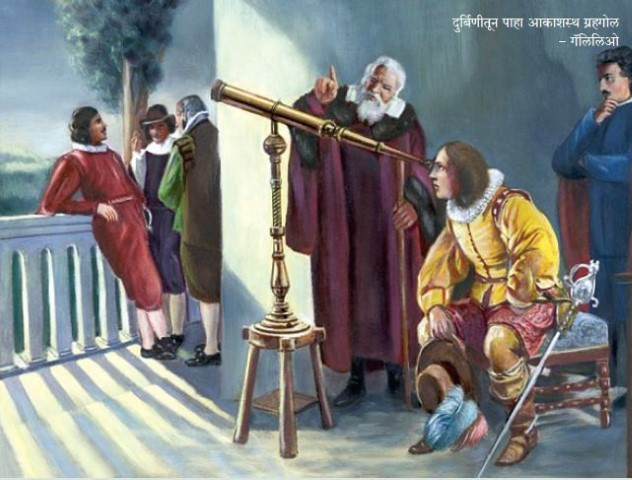 But it didn't stop there; it extended to the distortion of religion. We need to ask ourselves, why do we do what we do? What forces are we strengthening through our actions? What message does religion actually convey, and how do we act on it? I travel extensively in Maharashtra, and as a public activist, I often have to ask for donations. Once, I visited a place where a friend of mine had organized a grand Hanuman Jayanti celebration. He was a well-known social worker in the area. I asked him, “How do you manage to organize such big events every time? Where do you get all the money from? You’ve set up this huge pavilion and everything... How much money do you need to raise, and how do you do it?”
But it didn't stop there; it extended to the distortion of religion. We need to ask ourselves, why do we do what we do? What forces are we strengthening through our actions? What message does religion actually convey, and how do we act on it? I travel extensively in Maharashtra, and as a public activist, I often have to ask for donations. Once, I visited a place where a friend of mine had organized a grand Hanuman Jayanti celebration. He was a well-known social worker in the area. I asked him, “How do you manage to organize such big events every time? Where do you get all the money from? You’ve set up this huge pavilion and everything... How much money do you need to raise, and how do you do it?”
He looked at me and smiled, saying, “Narendra, I don’t have to raise money; people give it to me. In fact, all these expenses for this event were covered by a single person.” I was curious, so I asked him, “If this person is so generous, maybe he could also help my movement.” Then I asked, “Who gave you the money? Tell me, so I can approach him too and see if he can support my cause.” He replied, “No, that won’t work for you.” I insisted, “At least tell me who it is!” Then, laughing, he pointed to a permit room beer bar across the street.
So, you celebrate Hanuman Jayanti, but how is Hanuman described? ‘Manojavam Marutatulyavegam, Jitendriyam Buddhimatam Varishtam.’ This means someone who has mastered his senses and is superior in intellect. Yet, his festival is being celebrated with money from someone who loses control over their senses by drinking alcohol and dulls their intellect. There's no room left to even call this wrong!
Thus, superstition among the educated is not just a matter of spreading scientific awareness; it cannot be resolved merely by promoting science. If the political structure of the society we live in is built with the intention of exploiting people’s religious sentiments for selfish gains, then eradicating superstition becomes very difficult. It’s like how a manufacturer takes raw material, processes it with machinery, and produces a finished product. Similarly, these people have taken ‘public religiosity’ as raw material, processed it with religious fanaticism, communalism, and dogma, and attempted to produce political power through the ballot box. In a society where such a large adverse reality exists, the elimination of superstition among the educated cannot happen solely through an enlightenment movement.
In any democratic society, the primary responsibility for driving social change lies with political parties. To fulfill this responsibility, they must take a firm stance. However, today, political parties have adopted a new strategy: instead of leading people, they follow where the masses go. If people flock to a particular spiritual guru or watch shows like 'Little Champs,' the politicians follow suit. They seem to have forgotten that governance is meant to be driven by a philosophy of social change, and that they have been granted power to uphold this philosophy.
I once had the opportunity to speak with the former Chief Minister, Vilasrao Deshmukh. He said to me, "Dabholkar, everything else is fine. We agree that there should be laws and all, but millions of people go to these spiritual gurus and babas. We are politicians at the end of the day, and we have to go where the people are. Do you have an answer to this?" He thought he had posed an unanswerable question. I replied, "Yes, I do have an answer." He was a bit surprised and asked, "What is your answer?" I said, "The answer is that the solution to this lies with you." He was confused and responded, "How is the answer with us? We are not social workers like you!" I explained, "Sir, you are not social workers; you are the rulers. You have control over 20,000 secondary schools, 80,000 primary schools, 2,200 colleges. There are 600,000 teachers in primary and secondary schools, with 11 million students enrolled. Additionally, 1 million students are studying in colleges with nearly 100,000 professors. The curriculum, value education, and even the Indian Constitution mandate the promotion of scientific temper. You aren’t doing anything about this, which is why we have to."
The crucial point here is that the eradication of superstitions has become more challenging due to the crumbling healthcare system, the rise of caste and religious identities due to the absence of class struggle, the blatant rise of cultural nationalism, the abandonment of the role of governance in driving change, and the shortsightedness of the media. When the media airs shows like 'Raaz Pichhle Janam Ka,' people naturally ask us, "Is hypnosis real? Can it take you to a past life? Are the things people say about their past lives true?"
In reality, in many countries around the world, hypnosis is legally restricted because it is considered a fraud. But in our country, anything goes. Various channels show dead spirits appearing in court to testify, leading to a conviction, and then the spirit vanishing. No one asks why or how this happens because they say, "This is part of growing our business, and no one should question our business."
 When analyzing the reasons behind the superstitions of the educated, there are two primary aspects. The first is on a personal level, involving ignorance, fear of the unknown, unfulfilled desires, instability, helplessness, and guilt. The second aspect is at the societal level, which includes the state of the healthcare system, the intensification of caste and religious identities, religiously driven politics, the abandonment of roles by political parties, and the evasive stance taken by the media. What is the solution to this, and why has it happened? Solutions can be found for the first personal aspect, but addressing the societal aspect requires broader political action. While I may desire to engage in such politics, it is beyond my reach at present. Therefore, if I successfully address the personal aspect, I believe I can make a meaningful impact on both the superstitions of the educated and superstition in general.
When analyzing the reasons behind the superstitions of the educated, there are two primary aspects. The first is on a personal level, involving ignorance, fear of the unknown, unfulfilled desires, instability, helplessness, and guilt. The second aspect is at the societal level, which includes the state of the healthcare system, the intensification of caste and religious identities, religiously driven politics, the abandonment of roles by political parties, and the evasive stance taken by the media. What is the solution to this, and why has it happened? Solutions can be found for the first personal aspect, but addressing the societal aspect requires broader political action. While I may desire to engage in such politics, it is beyond my reach at present. Therefore, if I successfully address the personal aspect, I believe I can make a meaningful impact on both the superstitions of the educated and superstition in general.
We often say that the age of science has dawned in India. However, when the scientific age began in Europe, there was a significant upheaval, which hasn't occurred in India. In Europe, this upheaval continued for nearly four to five centuries. Roger Bacon lived from 1214 to 1294 and asserted, "Whatever is written in the scriptures may be so, but I will only believe what my experience and reasoning support." Bacon, who was a clergyman, had to endure 20 years in a dark cell for this stance. Similarly, Bruno claimed, "Though it appears that the Sun revolves around the Earth, I know that the Earth revolves around the Sun." In Rome, Bruno was burned alive at the stake. When Galileo expressed the same view, he was sentenced to life imprisonment. Thus, Europe underwent a profound intellectual upheaval, which involved inquiry, action, and fearlessness. It was a multifaceted upheaval. On one hand, scientists were presenting truths; on the other, philosophers like Descartes declared, "I think, therefore I am" (indicating that thinking is what makes one human).
Simultaneously, many artists defied the Church and expressed themselves through painting, music, and sculpture. Protestants asserted, "Whatever our relationship with Jesus may be, we will deal with it ourselves; we don't need the Pope." Many writers held similar views. As a result, Europe experienced four to five centuries of intellectual turmoil, which eventually shaped a scientific mindset among the masses.
In India, the scientific temper emerged as a byproduct of British colonialism. The British brought only the technology and science that served their needs. The local capitalist class didn’t have to accumulate capital from scratch; their wealth came from brokerage, moneylending, and a large feudal system. Additionally, knowledge was concentrated in the hands of the higher castes, such as Brahmins and Banias. Therefore, when the scientific mindset arrived in India, it brought only the element of inquiry without the associated fearlessness and action. Consequently, the idea of challenging superstitions began to be seen as impossible, and people started behaving as if this impossibility were a given. I will provide two examples to illustrate this.
Maharashtra has a strong tradition of the Satyashodhak movement (a reform movement). One prominent figure in this movement was Krantisinh Nana Patil, who was a staunch Satyashodhak. He gave speeches in many places. After one of his speeches in a village, it was discovered that the silver eyes of the deity in the village temple had been stolen. People were convinced that someone had stolen them under the influence of Nana's speech. However, the temple was believed to be highly active and alert, so the thief was expected to come back, feeling guilty, and return the eyes. A month passed, a month and a half, two months went by, but the eyes were not returned. Three or four months later, Nana returned to the same village for another speech. He stood in the same temple and said, "You claim that this deity is alert. His eyes were stolen four months ago. In reality, they were not stolen; I took them." He then pulled out the eyes from his pocket and showed them. He continued, "If your deity didn’t do anything to me, then how can he be considered alert?" This was asked with a sense of action and inquiry 60-70 years ago in Maharashtra. But what is the state of inquiry and action today?
You may find this amusing, but here’s a real story from the movement. As modern individuals, we all value time greatly, and rightly so. However, people in this country waste time in various ways, one of the most significant being at the cremation ground. During the ritual of pindadan (offering to ancestors), at least 50-100 people wait for a crow to touch the pind (rice ball). How much time does this take? People start from their homes, go to the cremation ground, place the pind, and then everyone waits until the crow touches it. Do you know the idea behind this? The belief is that on the tenth day after death, the soul of the deceased stops at the place where the pind is placed. Ideally, the soul should go to heaven, but on the tenth day, it is called back on duty and comes to stand by the pind. However, none of the deceased's loved ones can see the soul standing by the pind, but the crow, with its special ability, can. Not only does the crow see it, but it can also tell whether the soul is happy or sad. It is said that even from a living person's face, one cannot always tell if they are happy or sad. Sometimes, a person who is internally sad may appear happy on the outside, or a person who is happy inside may look sad. But the crow understands everything. If the soul is happy, the crow knows immediately and quickly touches the pind, and everyone says, "Finally!" But if the crow sees that the soul is sad, it refuses to touch the pind.
 Then someone among the relatives says, "Oh, his daughter's marriage is still pending. He must be worried about that."
Then someone among the relatives says, "Oh, his daughter's marriage is still pending. He must be worried about that."
Another person responds, "Don't worry, we'll arrange your daughter's marriage."
Or someone else says, "His son doesn't have a job. There's no other support at home."
Someone suggests, "Tell him we'll get his son a job."
This conversation reaches the spirit! How—don’t ask—but it does. The spirit then appears happy, which the crow notices, and the crow touches the offering. Then everyone says, "Look, the crow touched the offering." Everyone is then free to go home, and the crow is free to touch the next offering! You laughed, didn't you?
But one of our activists actually conducted an amusing experiment. While still alive, he took his wife and children to the cremation ground and placed his own offering. Now, tell me, should the crow touch it or not? Well, the crow quickly came and touched it! If a person who had been a vegetarian all his life was offered a spicy mutton dish as the offering, would the crow touch it or not? The crow should have actually come and pecked at him, saying, "I was a vegetarian all my life, and now you're offering me meat!" But nothing like that happened. Then another group thought, "This program seems interesting." They also organized a public offering event. Immediately, the religious conservatives got angry. They said, "How dare you mock our Hindu religion!" So, "a crow touching the offering" doesn't mock their Hindu religion, but "discussing whether a crow touches the offering or not" does. This is the reality of Maharashtra today.
Therefore, in the case of the educated class's superstitions, mere curiosity is not enough; fearless action is also essential. The extent to which this fearless action is adopted will determine the extent to which the educated class's superstitions are eradicated. Many of us might have seen the leaflets of Santoshimata. There was a time when this was more prevalent, but it still exists to some extent. The leaflets would say, "If you print and distribute 500 of these, you'll be blessed. But if you discard it, something bad will happen to you. Someone in your family might die, you'll suffer financial losses," and so on. One day, such leaflets arrived in a taluka town as well. There was a teacher there who was one of our activists. On the day the leaflets arrived, he went to class and said to the students, "I received such a leaflet this morning." He showed them the leaflet. The students had also received it and had brought it with them.
He asked the students, "Now, what will the teacher do?" He read the leaflet aloud and then tore it up in front of the students! The students were shocked. Then the teacher said, "Now, keep an eye on me for the next fifteen days. Let's see if Santoshimata does anything bad to me." Later, he told me, "Doctor, during those fifteen days, my son had a fever for two days, but I still sent him to school. If I hadn't, people would have said, 'Santoshimata did something…’" Then, exactly on the fifteenth day, the students took out the leaflets from their bags and tore them up.
In short, even though Maharashtra has a very bright tradition of social reformers, we have forgotten to combine curiosity with fearless action. Why is this fearless action necessary? There's a famous quote by Marx: "When ideas take hold of the masses, they become a material force." Material force isn't just in a 440-volt electric bulb or in the water of a dam. When society collectively decides, "We will do this," a material force is created. If the wrong idea of "demolishing one religious site to build another" takes hold of society, it changes the country's politics and leads to a change in power. The impact of ideas is that powerful!
In the same way, if rationalist ideas take hold of the minds of the masses here, then naturally, sooner or later, the government of this country will have to allocate more resources for health, real struggles for people's issues will take place, identities based on religion and caste will fade, cultural nationalism will recede, and secularism will become strong again. The state institutions that represent the people will play their roles more honestly, and they will compel the media here to take the right stand. After all, it is the people who create and change society. And those who are educated have a greater responsibility to do this. Therefore, when they fall prey to superstitions, it is more painful. Because of this, society can change based on ideas. The society that has lost faith in this must regain it, and we should all become like-minded activists who pledge to change society for the right values. This is my sincere request to you.
- Dr. Narendra Dabholkar
(A speech delivered on February 27, 2010, at the "World Outside the Framework" lecture series organized by the Marathi Department of Pune University.)
Read the Original Speech in Marathi here
Transcript by: Bhagyashree Bhagwat
Translation by: Rucha Mulay
Tags:Load More Tags

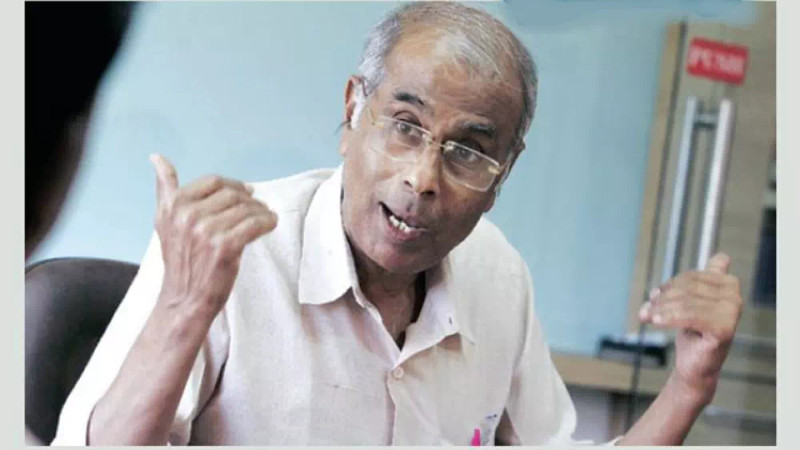




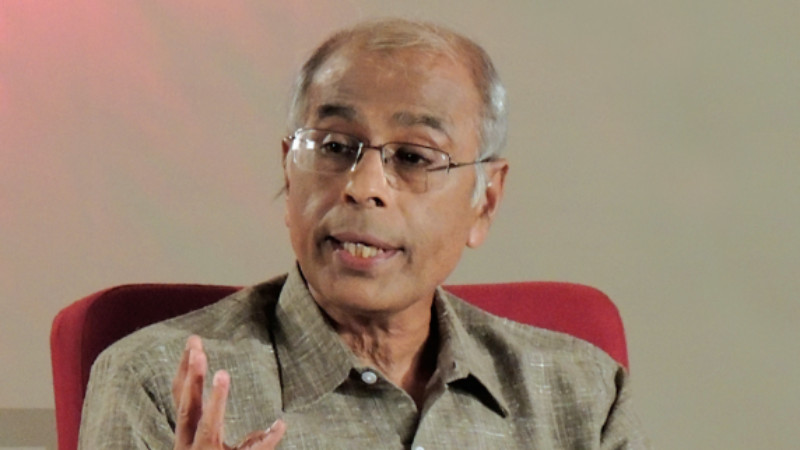
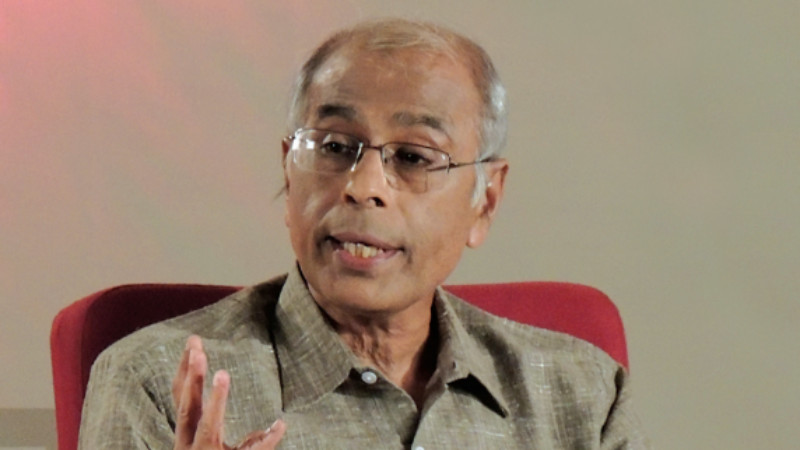
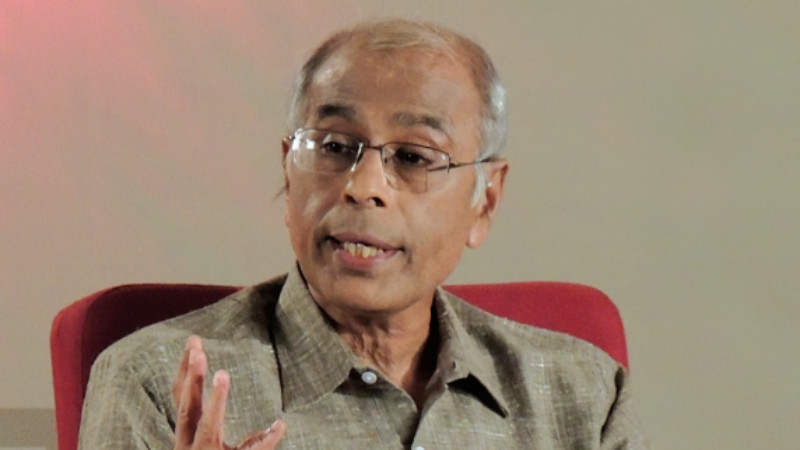
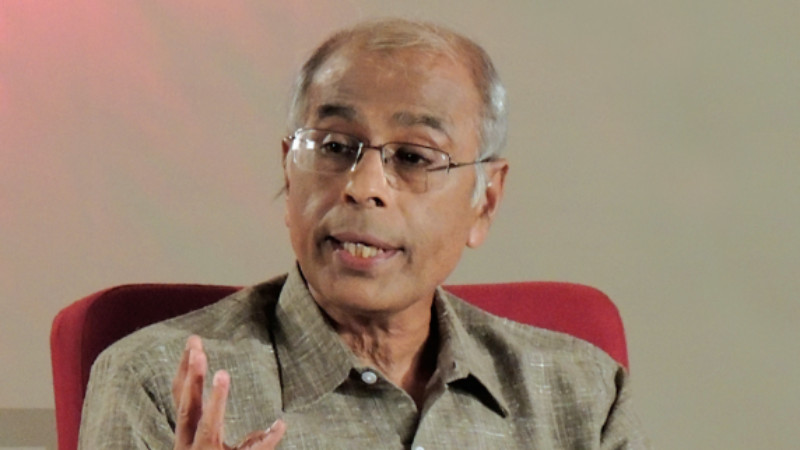
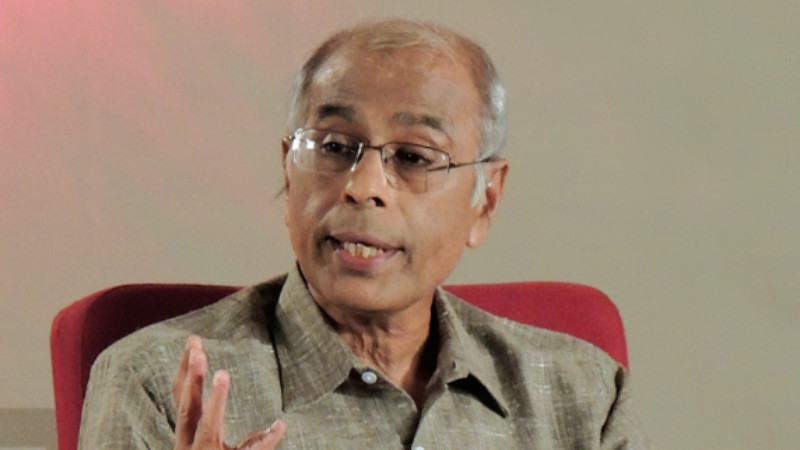


























Add Comment